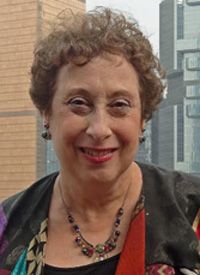Nowhere to Turn: Cancer-Related Problems with Sexual Health or Fertility
Leslie R. Schover, founder of the Will2Love online resources, discusses the sexual health and fertility issues that can come as a result of cancer treatment, and how these issues can be managed. Join us for our #CureConnect tweetchat, Tuesday 2/21, on this topic.
Leslie R. Schover, PhD

Leslie R. Schover, PhD
Over 60% of the 15.5 million cancer survivors in the US end up with severe sexual problems that do not go away by themselves, yet fewer than 20% ever get help from a health professional. In surveys, oncologists, nurses, psychologists, and other professionals agree that sex is an important issue to discuss—yet each group also asserts that talking about sex is “not my job!” Doctors think nurses should do it—nurses think doctors should do it—and psychologists just think some other professional should do it!
Infertility affects fewer cancer survivors, but each year in the US, another 170,000 people under age 45 are diagnosed with cancer and half will face damaged fertility. With men and women starting families at later ages, more young adults are facing cancer-related infertility. We can freeze sperm or eggs for the future, but only about 25% of men and 5% of women take advantage of these technologies.
Even in top cancer centers, with excellent care and easy availability of sex therapists, gynecologists, urologists, sperm banks, and fertility preservation programs, sex and fertility often falls off the radar in discussions with patients. Only 15% of cancer patients in the US are treated at major cancer centers that would be most likely to provide reproductive health care, and only 6 centers (to my knowledge) have specialized clinics to help with sexual problems.
As a psychologist myself, I have always been an advocate for empowering patients to make the best health decisions.
What if you are a 52-year-old man diagnosed with prostate cancer and have the surgeon telling you that nerve-sparing prostatectomy is your best shot at a long life while the radiation oncologist says you can avoid erection problems and urinary problems if you have proton beam therapy?
What if you are a 34-year-old woman, 4 months pregnant with your first and very wanted child, when you find out you have breast cancer? Your local doctor tells you to terminate your pregnancy if you want to live, but you find articles on the internet that say you may be able to have good cancer treatment and save your baby?
What if you are a happily-married 68-year-old woman on hormone therapy for breast cancer that shrinks your vagina and makes sex so painful that you just give it up?
I founded Will2Love as an online place where people can find the answers to their questions 24/7, in the privacy of home, without depending on their oncology team to take enough time to truly educate them.
And on Tuesday, February 21, I’ll be co-moderating the #CureConnect tweetchat at 9 PM EST, to discuss cancer-related sexuality and fertility issues. Please join me for an opportunity to ask any questions you might have, share advice and tips and dispel some myths.
Nurse Practitioners Weigh in on Data From the San Antonio Breast Cancer Symposium
January 16th 2023Loyda Braithwaite, MSN, RN, AGPCNP-BC, AOCNP; and Jamie Carroll, APRN, CNP, MSN, highlight presentations from the 2022 San Antonio Breast Cancer Symposium that will influence oncology nursing practice.
Nurse Practitioners Weigh in on Data From the San Antonio Breast Cancer Symposium
January 16th 2023Loyda Braithwaite, MSN, RN, AGPCNP-BC, AOCNP; and Jamie Carroll, APRN, CNP, MSN, highlight presentations from the 2022 San Antonio Breast Cancer Symposium that will influence oncology nursing practice.
Latest Conference Coverage
2 Commerce Drive
Cranbury, NJ 08512
All rights reserved.




